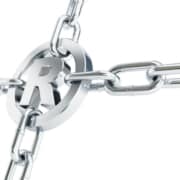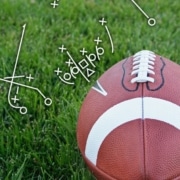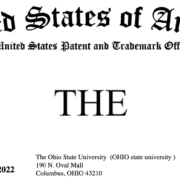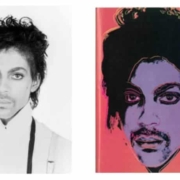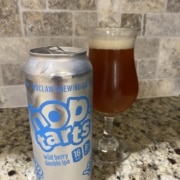Rocket City Trash Pandas – A baseball team in Northern Alabama or a Guardian of the Galaxy?
After  several months of consideration and public polling, on September 5, 2018 the town of Madison, Alabama (a suburb of Huntsville, nicknamed “The Rocket City” for its close association with U.S. space missions) and team owner BallCorps, LLC announced the name of its new AA baseball team, which will be known as the “Rocket City Trash Pandas.” For those of you unfamiliar with the modern slang terminology, “trash panda” is a commonly used term for a raccoon. The name makes sense, right? Rocket City for the region where the team will be based and Trash Pandas for an animal (commonly used as mascots for many sports teams) that is indigenous to the region. The name is fun, catchy and creative and perfectly suitable for use in connection with a baseball team in this universe. But, for a moment, let’s consider the Marvel Universe®.
several months of consideration and public polling, on September 5, 2018 the town of Madison, Alabama (a suburb of Huntsville, nicknamed “The Rocket City” for its close association with U.S. space missions) and team owner BallCorps, LLC announced the name of its new AA baseball team, which will be known as the “Rocket City Trash Pandas.” For those of you unfamiliar with the modern slang terminology, “trash panda” is a commonly used term for a raccoon. The name makes sense, right? Rocket City for the region where the team will be based and Trash Pandas for an animal (commonly used as mascots for many sports teams) that is indigenous to the region. The name is fun, catchy and creative and perfectly suitable for use in connection with a baseball team in this universe. But, for a moment, let’s consider the Marvel Universe®.
Marvel Characters, Inc. currently holds, or is pursuing federal trademark registrations on almost 1,500 different marks and has been granted almost 10,000 federal copyright registrations. Included in that mix are trademark and copyright registrations to the Guardians of the Galaxy®️ movie and characters, including Rocket Raccoon®️, depicted in the second photo. When compared to the first photo that accompanied the Rocket City Trash Pandas announcement, we think you will see why we have concerns. Will a company that spends millions (perhaps billions) of dollars creating, developing and marketing its characters sit idly by while a AA baseball team in Northern Alabama uses images of an armor-clad Rocket Raccoon®️ to brand its new baseball team called the Rocket City Trash Pandas? We would be surprised if they do – Marvel even has a page on its website for people to report suspected infringement.
In the Trademark Universe, the owner of a mark may be provided with protection for a character’s name, physical appearance and distinctive designs and perhaps other qualities. Famous marks, which invoke an immediate connection in the minds of the consumers with a specific product or service and the source of that product or service, are given a broader scope of protection than ordinary marks. Examples of famous trademarks are APPLE, GOOGLE, MICKEY MOUSE and MAGIC KINGDOM. Acquiring famous mark status “often requires a very distinct mark, enormous advertising investments and a product of lasting value.” It is more than plausible that Marvel could make a case that its Guardians of the Galaxy®️ and Rocket Raccoon®️ marks have achieved “famous mark” status.
Even in the absence of a likelihood of confusion, the owner of a famous mark can bring an action for trademark dilution, which allows the owner of a famous trademark to forbid others from using that mark in a way that would lessen its uniqueness. In most cases, trademark dilution involves an unauthorized use of another’s trademark on products or services that do not compete with, and have little connection with, those of the trademark owner. So it is not inconceivable that a famous trademark used by Marvel to refer to a comic book character might be diluted if another company began using a similar mark to refer to a baseball team.
In some ways the Copyright Universe presents a parallel universe. Under federal copyright law, it is well settled that stock characters are free for anyone to use. However, characters that are depicted graphically or visually, such as in comic books, television, or film are more likely to be extended copyright protection. Thus, a stock picture or graphic of a raccoon as part of the Trash Pandas logo would not likely constitute an infringement. However, as we can see from the second photo, the Rocket Raccoon character is not a “stock” character. Rather, there are elements to the character that render it protectable under copyright law – the particular look and features of the character’s face and the clothing are a few examples. Comparing the two photos above raises some serious issues of copyright infringement should BallCorps use the proposed logo design or one similar to it. Use of a stock image of a raccoon, or one that doesn’t look so strikingly similar to the Rocket Raccoon®️ character would diminish the potential for copyright infringement significantly, but may not be enough to avoid allegations of infringment which can be very expensive to defend.
Apparently BallCorps is not totally oblivious to issues of intellectual property regarding the naming of its team. On July 26, 2018 it filed two applications with the U.S. Trademark Office for registration of the name TRASH PANDAS. If the mark passes muster with the trademark examiner, it will be published for opposition for 30 days in the Official Gazette. It would not surprise us in the least to see Marvel oppose registration of this mark on the basis of potential dilution of its marks. We will continue to monitor the status of these applications as they progress and provide updates along the way.
What lessons can we take from this situation? When starting a new business and branding for that business, file early and often. The US Trademark Office allows an applicant to file an application for registration based on “intent to use” the mark, so actual use is not required. Thus, it may be possible to obtain approval of the mark before you even begin using the name/mark. The applications should also cover any and all goods AND services you intend to offer under the mark. You should also register your logo, slogans and other branding associated with your products and services. A clearance search and opinion from an experienced intellectual property attorney can also give you insight into the rights of others who may have similar marks, which could avoid costly litigation in the future. If you are starting a new business, launching a new product, or re-branding an existing company or product, contact us to ensure your path is clear and your assets are protected.


